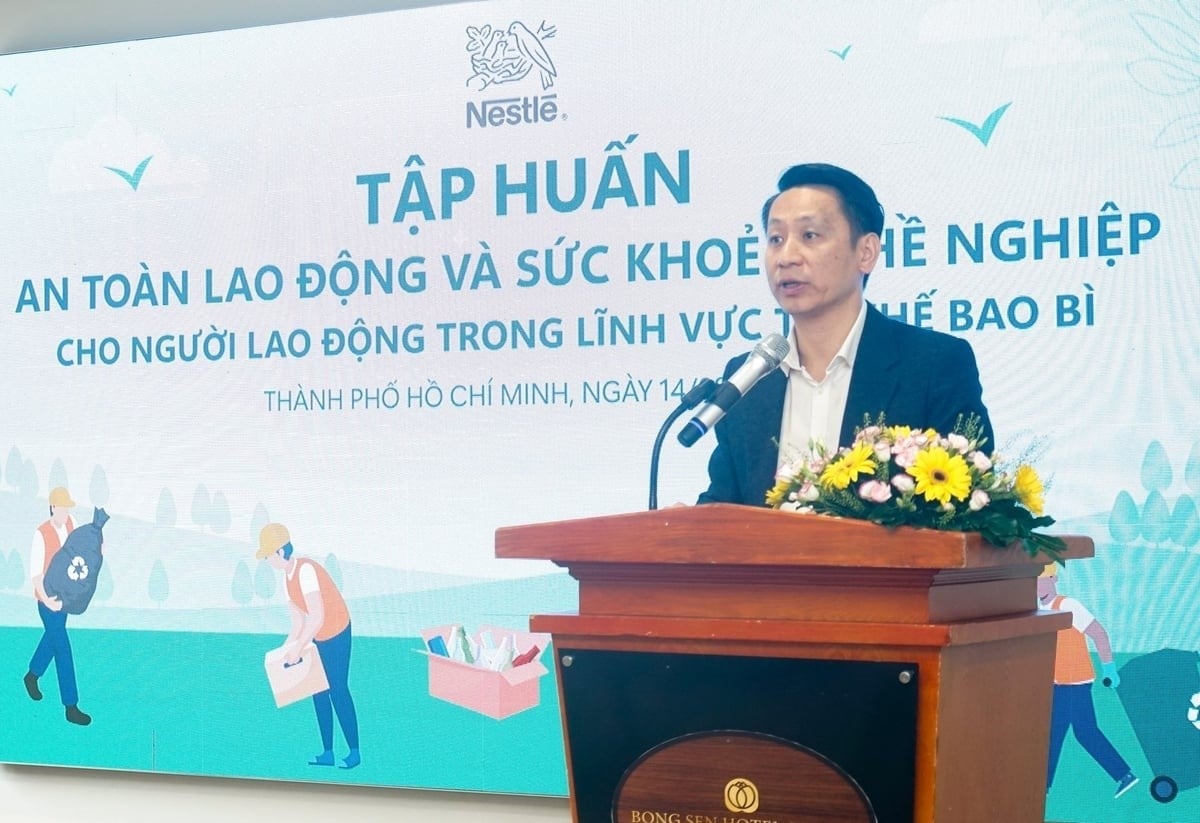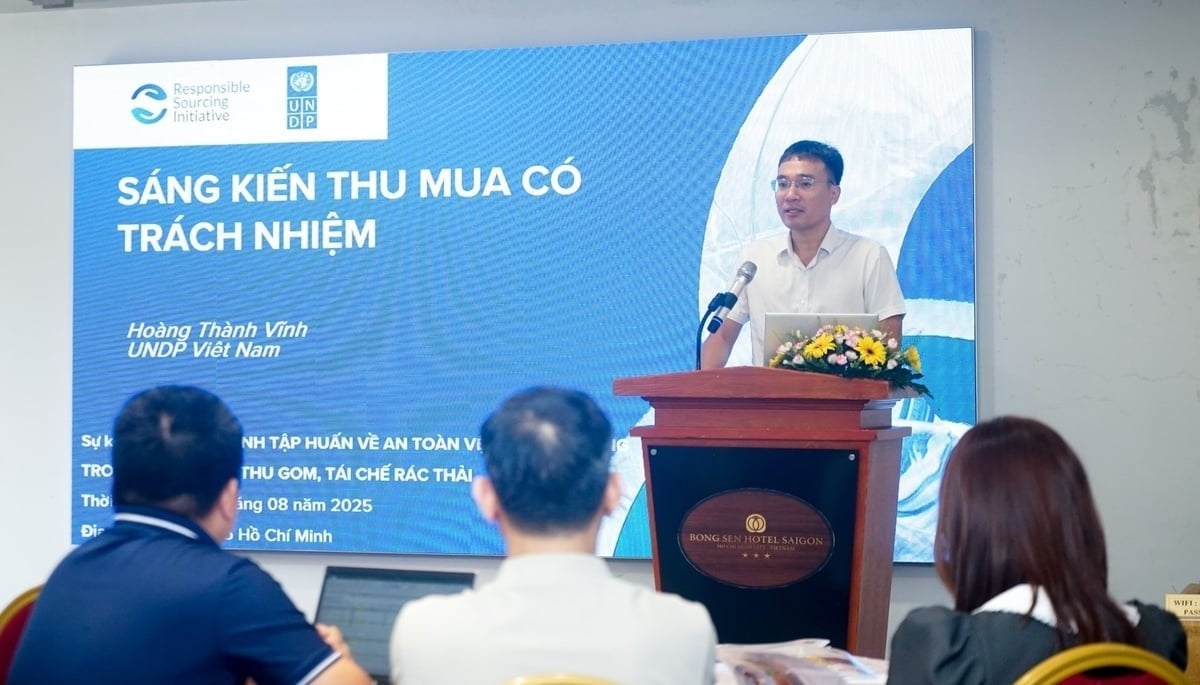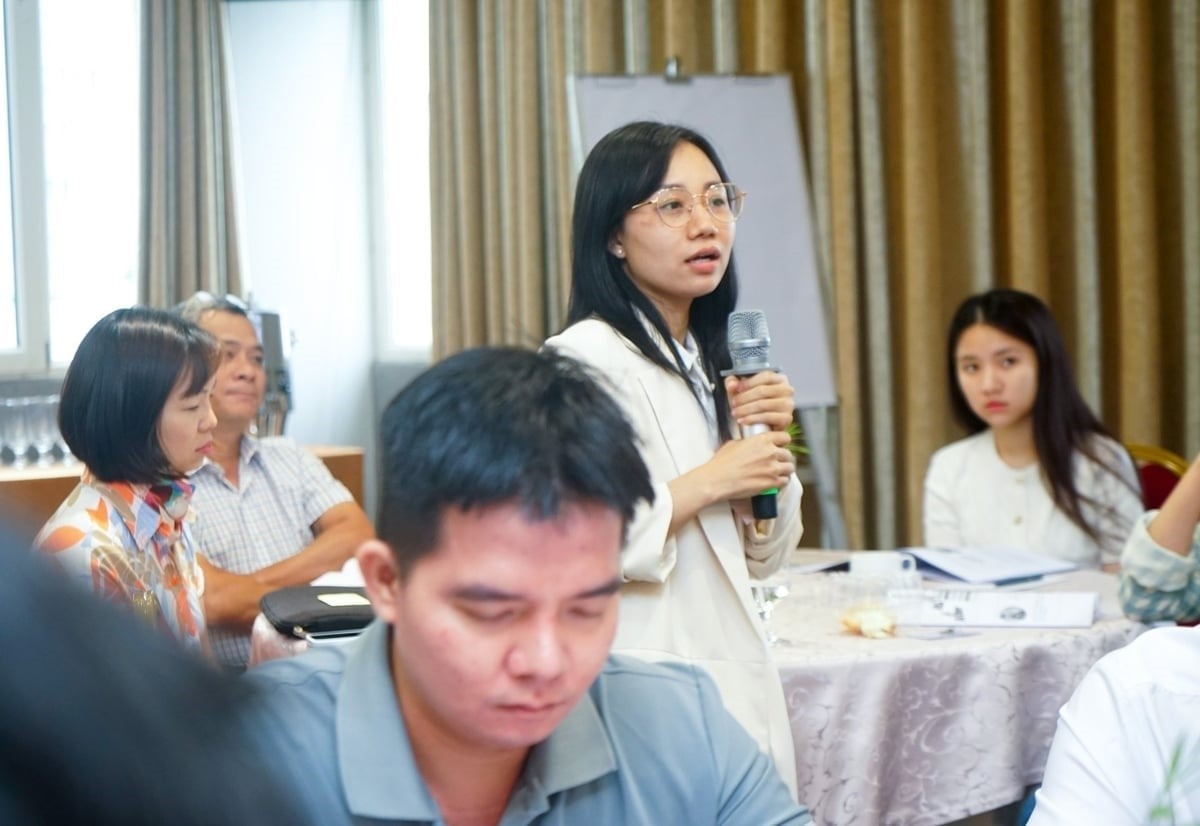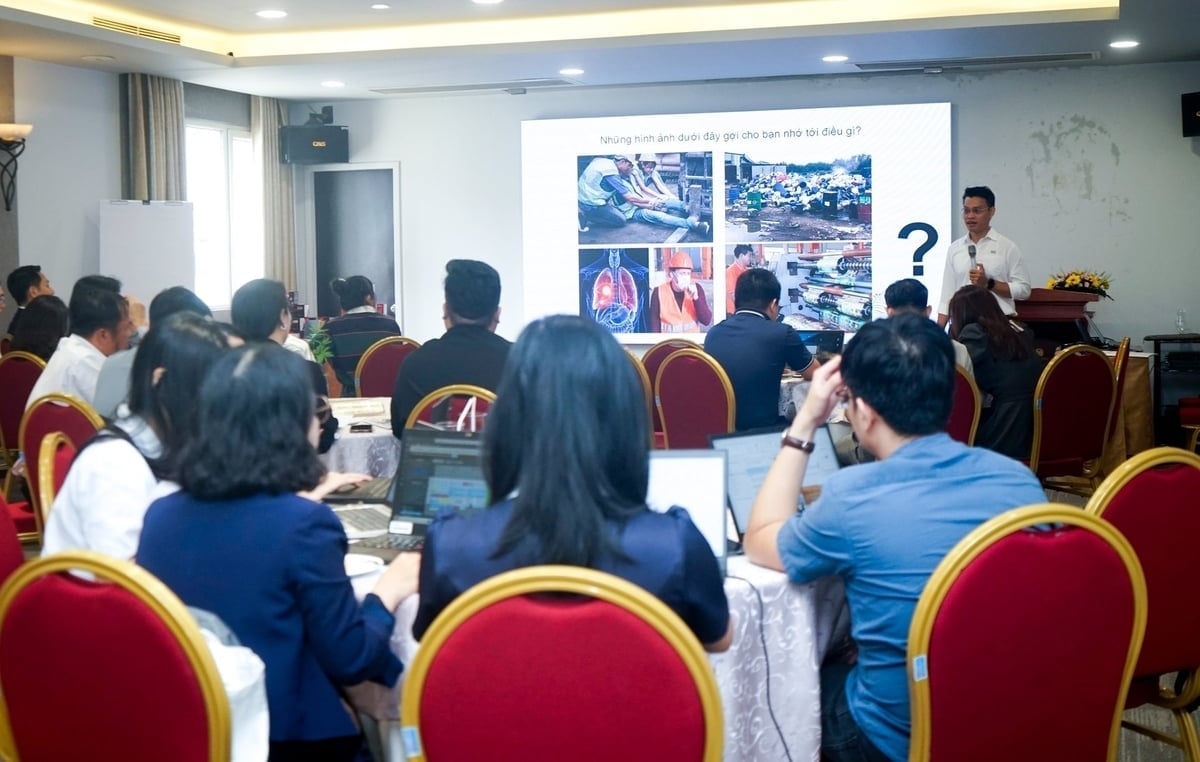November 25, 2025 | 19:40 GMT +7
November 25, 2025 | 19:40 GMT +7
Hotline: 0913.378.918
November 25, 2025 | 19:40 GMT +7
Hotline: 0913.378.918
The training program is part of Nestlé's efforts to build a sustainable and responsible supply chain, aligned with the company's commitment to fostering long-term community development with people placed at the center.

Mr. Khuat Quang Hung, Deputy General Director in charge of External Relations and Communications at Nestlé Vietnam, delivered the opening remarks at the program. Photo: Nestlé Vietnam.
The program also reflects Nestlé Vietnam's proactive approach in promoting cooperation and strengthening support for partners, including private enterprises and small- and medium-sized businesses, to enhance competitiveness in line with Resolution No. 68/NQ-TW.
Delivering his opening remarks, Mr. Khuat Quang Hung, Deputy General Director in charge of External Relations and Communications at Nestlé Vietnam, stated, "This training program is part of our long-term commitment to building a responsible and sustainable supply chain. By supporting recycling businesses, particularly small- and medium-sized enterprises, through sharing knowledge and tools to improve occupational safety and hygiene practices, we aim to safeguard workers' rights and contribute to building a greener future. Nestlé Vietnam remains steadfast in its mission to create shared value and promote the long-term development of communities, with people placed at the center of all our activities."

Mr. Hoang Thanh Vinh, representative of UNDP Vietnam, shared about the responsible sourcing initiative in Vietnam's plastic recycling value chain. Photo: Nestlé Vietnam.
Within the framework of the program, experts shared important foundational knowledge as well as the latest updates on relevant legal regulations and international requirements aimed at assessing corporate responsibility in complying with environmental standards and labor rights in the supply chain. This helped leaders and management teams of recycling companies gain a clearer understanding of their role and responsibility in building a safe, compliant, and responsible working environment and culture, ensuring workers' health, improving work quality, and minimizing the risk of occupational accidents.
In addition to the expertise content, the program also provided delegations with practical insights from the United Nations Development Programme in Vietnam (UNDP Vietnam) through the implementation of a responsible sourcing initiative in two plastic recycling value chains: Duy Tan and Vikohasan. The initiative's primary goal is to improve working conditions and strengthen the rights of free laborers in the scrap sector.
Mr. Hoang Thanh Vinh, representative of UNDP Vietnam, said, "Free laborers in the scrap sector play a vital role in the collection, transportation, and recycling of waste in Vietnam. Through this initiative, we will work with all stakeholders in the plastic recycling value chain to apply and implement standards that improve their working conditions and livelihoods while ensuring their contributions are recognized."

Representatives of business leaders and managers participating in the training program engaged in discussions with the speakers. Photo: Nestlé Vietnam.
Ms. Luu Thi Kim Lien, Human Resources and Administration Director at Duy Tan Plastic Recycling JSC, shared, "I highly appreciate the practical value of today's training program. The contents shared at the program will help us review and perfect our internal processes, ensure compliance with current regulations, and create a safe working environment for our employees. We hope that Nestlé Vietnam, together with its partners, will organize more similar programs in the future to deliver sustainable value for businesses and communities and to work together toward a greener, more comprehensive circular economy."

The occupational safety and hygiene training program in waste management is part of Nestlé Vietnam's efforts to build a sustainable and responsible supply chain. Photo: Nestlé Vietnam.
In the context of ESG (Environmental –Social–Governance) becoming a key factor in achieving the Sustainable Development Goals, businesses are focusing not only on environmental factors but also placing greater emphasis on social and governance aspects. As a pioneer in ESG practices and with the philosophy of "creating shared value," Nestlé has introduced numerous specific initiatives and programs to contribute to the prosperity of communities.
Through its occupational safety and hygiene training program in waste management, Nestlé Vietnam reaffirms its commitment to building a sustainable and responsible supply chain while fostering stronger collaboration with partners in the recycling sector. By aligning with ESG principles and promoting shared value, the company not only supports businesses, particularly small- and medium-sized enterprises, in improving compliance and creating a safe working environment but also contributes to fostering a greener, more inclusive circular economy.
Translated by Thu Huyen
/2025/11/24/3536-2-112800_176.jpg)
(VAN) Dong Nai now has tens of thousands of hectares of forests certified for sustainable management, and this area will continue to be expanded in the coming period.

(VAN) Vinh Ha hamlet (Dai Xuyen commune, Hanoi) is shifting away from small-scale farming as households adopt bioscurity into their breeder chicken models.

(VAN) Heavy rains make aquatic species more vulnerable to disease. Proactive water management and high-tech systems help farmers prevent outbreaks and protect yields.

(VAN) Greenhouses are shifting production mindsets in Binh Lu commune, enabling farmers to ‘weather the sun and rain’ and secure stable vegetable harvests throughout the year.

(VAN) Green transition is crucial for the Mekong Delta amid climate change and stricter standards, offering a path toward sustainability.

(VAN) Dong Thap promotes agricultural restructuring, forms large specialized farming zones, raises the value of agricultural products and develops toward ecological and high-tech directions.
/2025/11/22/4018-4-213342_747.jpg)
(VAN) The Mekong Delta Agricultural Experts Club has attracted 143 experts and researchers to participate in providing consultancy and contributing initiatives to the development of one million hectares of high-quality rice.